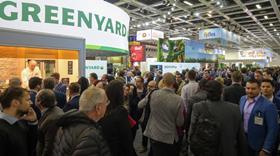
After a troubled period, it looks like the hard work that Greenyard has put into turning the business around is starting to bear fruit. With its transformation plan well underway, the group has announced that its results for the financial half-year – a timeframe ended 30 September 2019 – were “encouraging”, with its recovery proving “faster and stronger than expected, demonstrated by a significant increase of operational results.”
The group saw stability in its net sales for the half-year, coming in at €1.968bn, down just 0.5 per cent on the €1.979bn recorded in the first six months of financial year 2018/19. Adjusted EBITDA came in higher at €47.6m versus €42.1m in the previous year, and was up significantly on the €23.3m from the second half of the previous financial year.
Net sales in the fresh segment specifically were down 2.1 per cent, from €1.65m to €1.61m, due to the termination of certain loss-making sales volume and seasonal pressure on categories including grapes, melons, avocados and citrus – with this effect not yet fully offset by volumes from partnerships that are ramping up.
“Greenyard and our colleagues have shown great resilience and fought back hard,” said co-chief executive Hein Deprez. “We were able to secure new partnerships with our customers, solidifying our customers’ trust, but also leading the way in changing the traditional way of working in our sector. These partnerships demonstrate that it is possible to work closely together with our customers with a joint focus on the consumer and on sustainability, while at the same time creating value for all stakeholders in the value chain.”
The group’s transformation plan consists of both short- and long-term actions, with a revitalisation of volumes and margins, the rationalisation of the group’s footprint, an improved cost-management and operational excellence as its cornerstones.
Some 334 people left the group during the first half of the year as part of the plan, with Greenyard “outperforming” its half-year targets. The group also completed three planned divestments – its frozen plant in Hungary, its UK flowers business and it fresh distribution centre in Freiburg, Germany.
“The stringent execution of our transformation plan, on top of these new partnerships, emphasises the importance we attach to becoming a financially healthy company again,” noted Marc Zwaaneveld, co-CEO. “We continue to drive this continuous improvement and transformation process while embedding it in a dynamic and transparent company culture.
'The transformation plan not only entails a cultural change, but it is also fostered by the combination of years of experience, industry knowledge and external new insights. This leads to an improved way of working, enhancing both the quality towards our customers and our internal quality. This will prove to be the stepping stone for Greenyard to take a leading role in the industry.
“However, we are not there yet,” he noted. “We are still in the midst of our transformation period. A transformation is naturally associated with variability and uncertainty, particularly in the initial phases of transformational periods. Nevertheless, even in this transformational period, we are confident that we can increasingly bolster our group for the future and will do this gradually over the upcoming periods. We keep working diligently in pursuit of continuous improvements and stable partnerships, revitalising Greenyard while doing so.”



